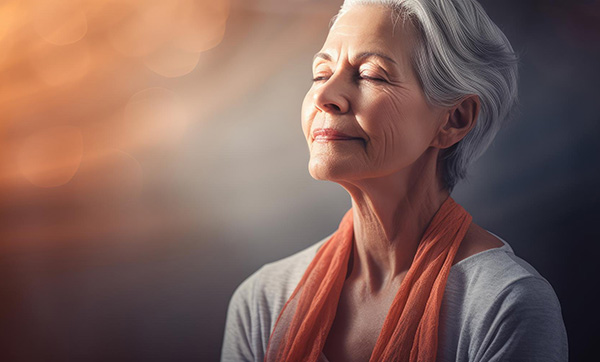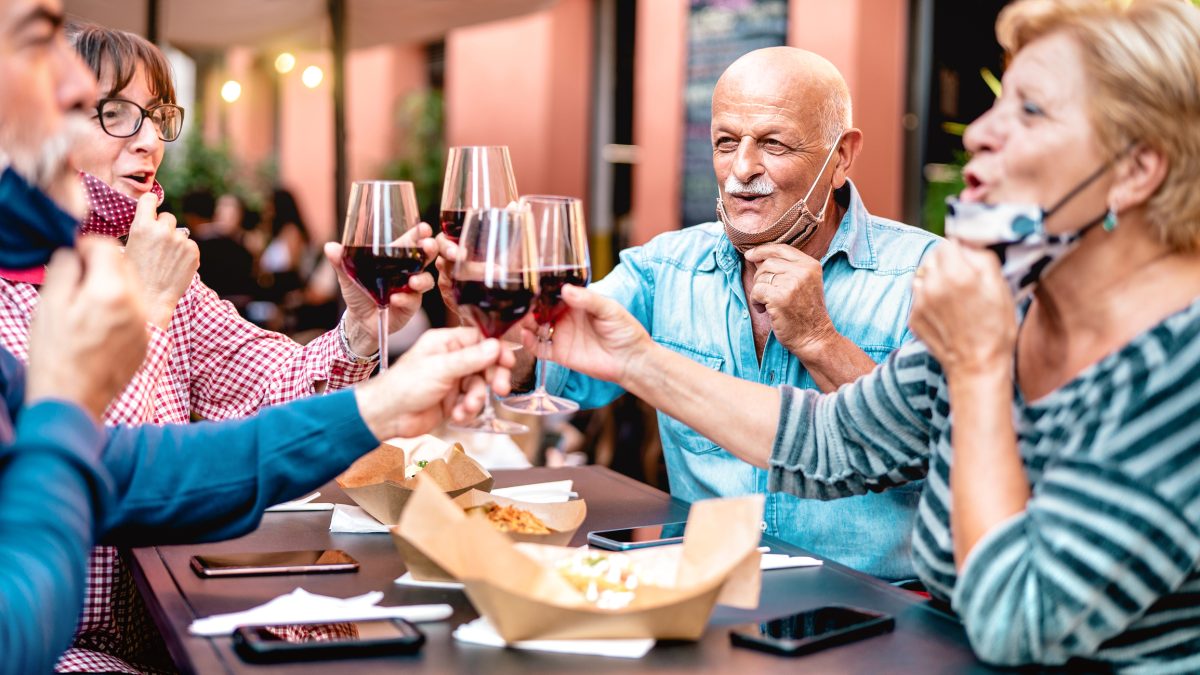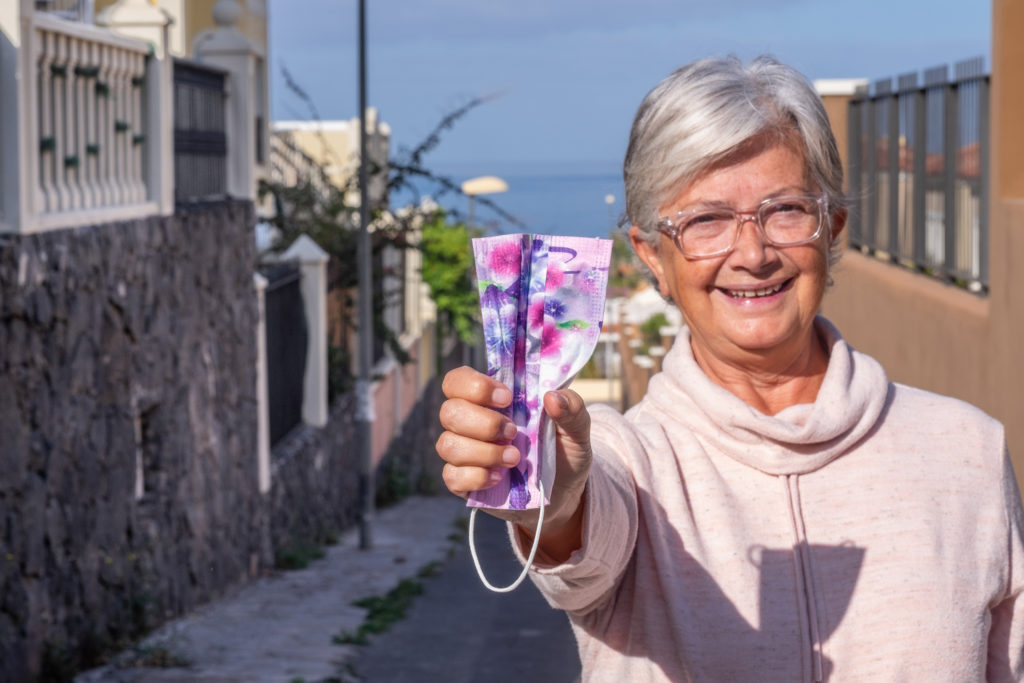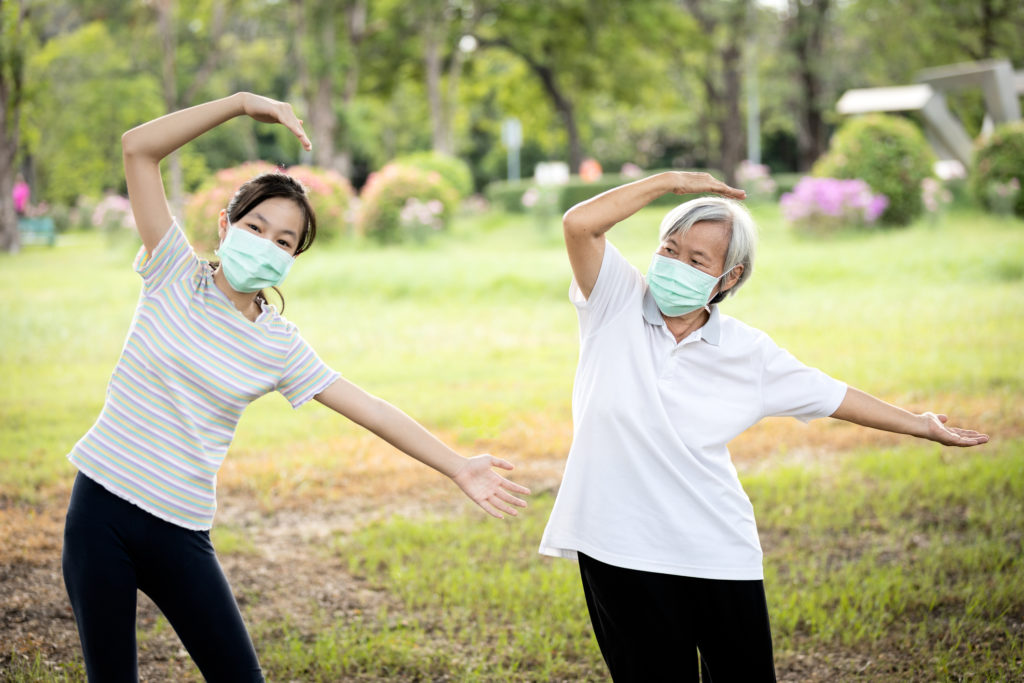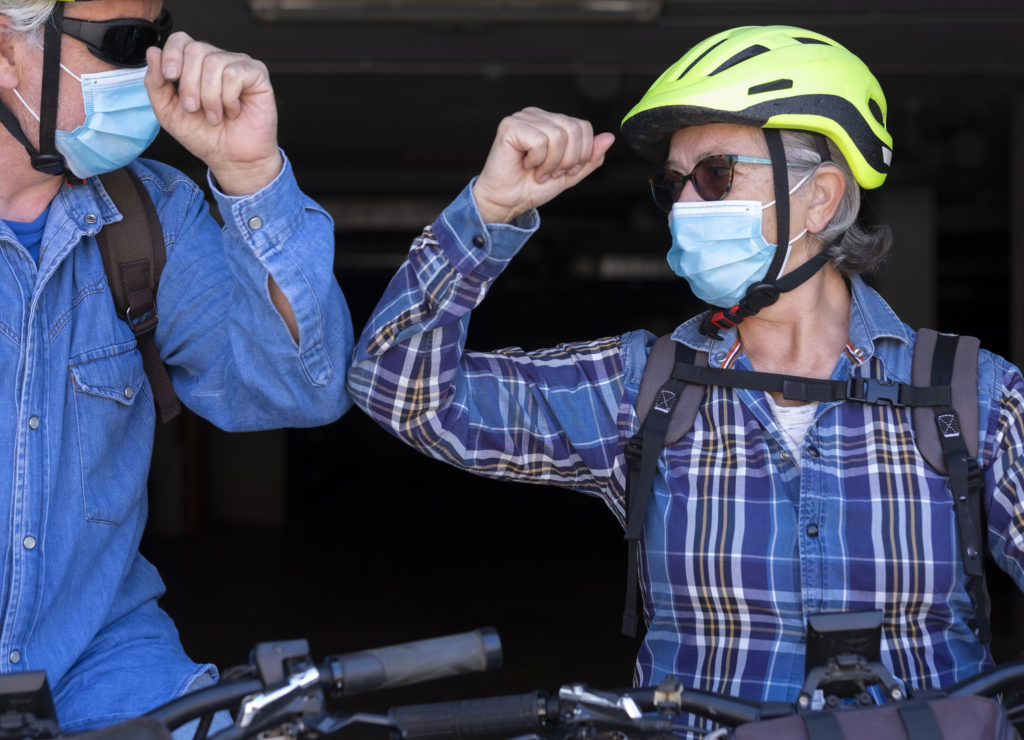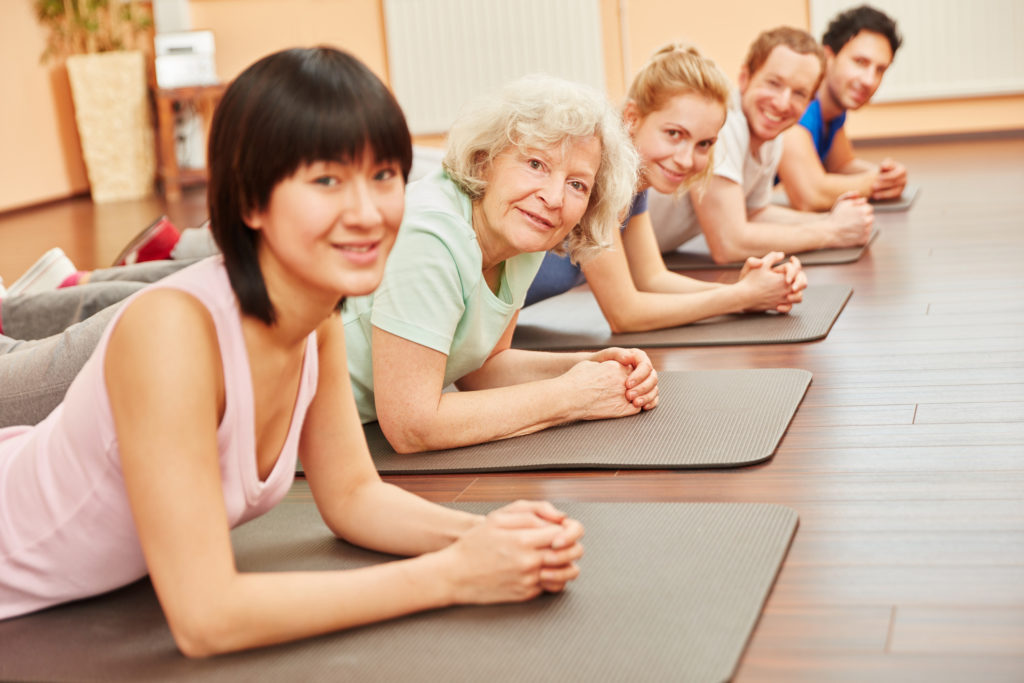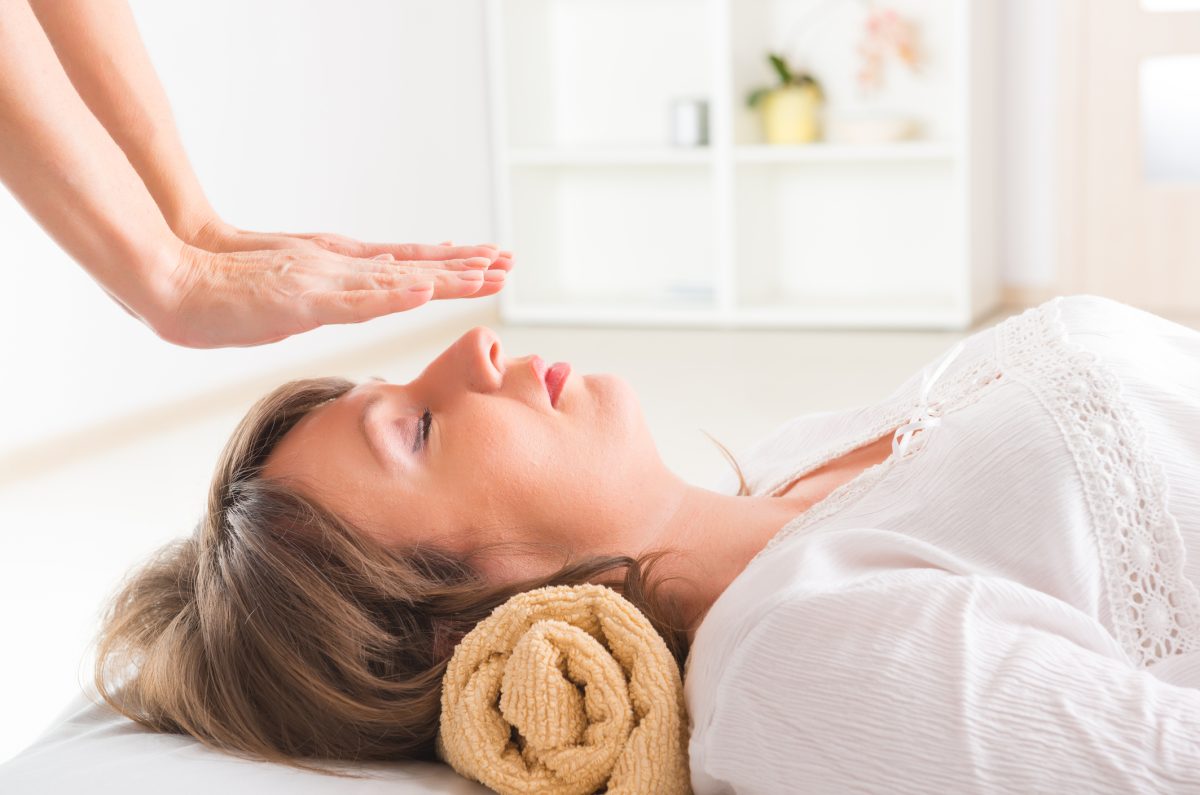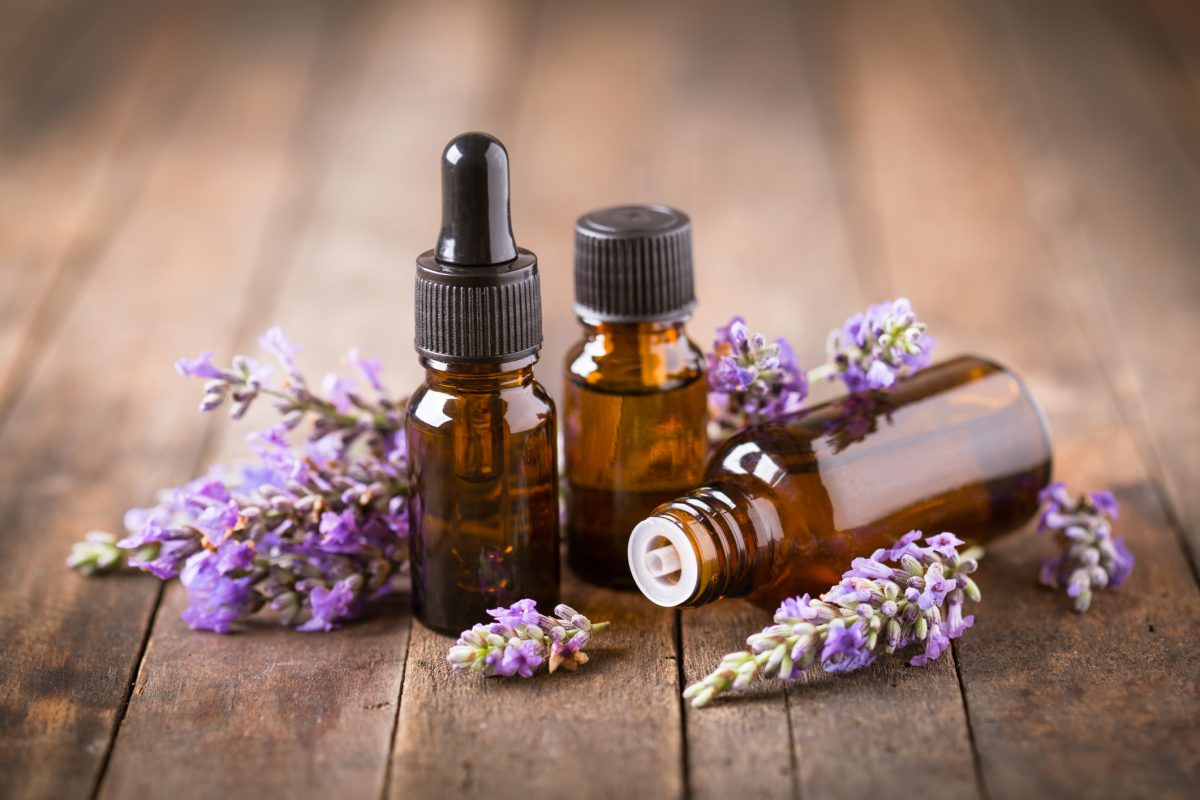Anxiety is on the rise in the U.S., with baby boomers leading the hand-wringing charge. A 2018 national poll conducted by the American Psychiatric Association found that Americans’ anxiety score jumped five points on a zero-to-100 scale from the same poll taken in 2017 — with a seven-point leap among boomers.
If the year 2020 has taught us anything, it’s taught us that we have an enormous capacity to “roll with the punches” or simply just carry on. Between the covid-19 pandemic and our own personal struggles, it can frequently feel like we have had enough and that the only help is an extra glass of wine and a subscription to Netflix.
But we’ve got many more resources than that, and much healthier ones than bingeing. We have access to an impressive array of complementary medical therapies designed to help us reduce stress and feelings of anxiety, that can help anyone at any age.
What is Complementary Medicine?
Complementary medicine or complementary therapies are modalities that are used alongside traditional medicine – or as a complement to traditional medicine. Complementary medicine is not a substitute for any kind of traditional medicine. Complementary medicine is a supplement. It is intended to provide or enhance feelings of well being and stress reduction which can lead to reduced anxiety and pain reduction.
There are many practices which are included in the body of complementary medicine. Most of these are accessible to everyone and can be adapted for a variety of abilities. But some of these therapies are particularly helpful to individuals suffering from forms of dementia or receiving treatment for advanced disease processes.
Complementary modalities provide stress relief
Chandler Hall has been on the forefront of providing innovative, compassionate care for over 40 years. Our mission has been to meet our community where they are with person centered care. We know that undergoing medical treatment for serious issues, developing dementia, and other aspects of aging can be accompanied by serious anxiety and stress. We develop each care plan to ease suffering and address a patient’s needs as they arise in an ever changing environment. We also try to ensure to the extent possible, we help reduce stress and anxiety for our residents with non-medical interventions whenever possible. As part of that mission, we offer the following complementary medicine modalities:
- Aromatherapy
- Reiki
- Mindful breathing
- Mindfulness meditation
Each of these modalities has been shown to enhance feelings of wellbeing and reduce stress.
What is Aromatherapy?
Aromatherapy uses scents, generally from essential oils from plants, to benefit your state of mind. The theory is that inhaling certain compounds can affect the same parts of your brain as anti-anxiety drugs, but without the worrisome side effects. Some popularly used essential oils for anxiety include lavender, rose, ylang-ylang, chamomile, jasmine, basil, clary sage and bergamot orange.
The simplest way to practice aromatherapy is to breathe while these essential oils are sprinkled on your pillow or a cotton ball, spritzing them into the air, or using a diffuser that disperses the fragrance into the air. You also can apply them to your skin via lotions or in a bath, but they can be irritating if not properly diluted.
Potential Health Benefits: Dozens of small studies indicate that various essential oils may help reduce anxiety and stress, especially when used in hospital settings and other stressful situations.
“Scent has a connection to the brain, and there are certain scents, like lavender, that trigger a relaxing response,” says mental health counselor S Katharina Star “Some people really do find it effective.” l
What are Mindful Breathing Exercises?
Breathing exercises are used almost everywhere. Anyone who has ever been to or even heard about Lamaze birthing classes knows about the breathing patterns designed to help a mother through the strenuous process. At the heart of every piece of advice you’ve ever gotten about stress is: “Just take a deep breath.”
According to the American Institute of Stress, the goal is to use abdominal — or deep belly — breathing to stimulate your parasympathetic nervous system, which promotes a sense of calm.
Deep breathing is similar to meditation, says Michael Ziffra, a psychiatrist with the Northwestern Medical Group in Chicago. “When you’re anxious, you have fast, shallow breathing, which can lead to hyperventilating, which triggers anxiety,” he says. “Deep breathing focuses on the inward and outward movements of the breath, getting your mind and body to a calmer place.”
Though practicing is as simple as taking deep breaths, there are specific methods you can use, including pranayamic breathing, where you inhale, hold, and exhale your breath for a certain number of seconds.
Potential Health Benefits: A 2017 study published in Frontiers in Psychology found that volunteers who participated in eight weeks of deep breathing training (20 sessions in all) showed levels of the stress hormone cortisol significantly lower than in people who didn’t do breathing training. Other research has found deep breathing can lower anxiety and increase feelings of well-being.
By giving our residents simple tools, they can learn to use breathing on their own or with our staff support to calm anxiety. Many smartphone apps, including Breathing Zone and Breathe+, can coach anyone through deep, even breathing.
What is Reiki?
The word “Reiki” means “universal life energy.” It comes from the Japanese words “rei” (universal) and “ki” (life energy). Reiki is a type of energy healing. Energy healing targets the energy fields around the body. According to practitioners, energy can be blocked in the body where there is spiritual, physical, mental or emotional pain.
Energy medicine aims to help the flow of energy and remove blocks in a similar way to acupuncture or acupressure. Improving the flow of energy in and around the body, say practitioners, can enable relaxation, reduce pain, speed healing, and reduce or eliminate other symptoms of illness.
Reiki has been around for thousands of years. Its current form was first developed in 1922 by a Japanese Buddhist called Sensei Mikao Usui, who taught 2,000 people the Reiki method during his lifetime. The practice spread to the U.S. through Hawaii by Mrs.or Sensei Takata in the 1940s, and then to Europe in the 1980s.
Potential Health Benefits: According to practitioners, the healing effects are mediated by channeling the universal energy known as qi, pronounced “chi.” In India, this is known as “prana.” This is the same energy involved in tai chi exercise. It is the life force energy that some believe surrounds all of us.This energy is said to permeate the body. Reiki experts point out that, while this energy is not measurable by modern scientific techniques, it can be felt by many who tune in to it. Reiki is alleged to aid relaxation, assist in the body’s natural healing processes, and develop emotional, mental, and spiritual well-being. It is also said to induce deep relaxation, help people cope with difficulties, relieve emotional stress, and improve overall well being.
People who receive Reiki describe it as “intensely relaxing.” While scientific proof of Reiki’s efficacy is still being gathered, patients have reported feelings of well being and healing.
What is Mindfulness meditation?
Meditation is the practice of simply being still and focusing on your breath while you let thoughts float by — staying present without drifting into worries about the past or future.
“One beautiful benefit is that you can do it nearly anytime, anywhere,” says mindfulness meditation trainer Danesh Alam, a psychiatrist and medical director of behavioral health at Northwestern Medicine Central DuPage Hospital. “If you’re going to a family event and it’s going to be a high-anxiety day, you can slip away to have a five-minute meditation every hour. Do some deep breathing, and in those five minutes you’ll lower your stress hormones and rejuvenate yourself,” Alam says.
Potential Health Benefits: Of all the self-care stress relievers, meditation is among the best-researched. A 2014 meta analysis of studies including 47 trials and 3,515 participants reported that mindfulness meditation practiced for two to six months worked as well for reducing anxiety symptoms as antidepressant medications.
Mindfulness meditation is easy, accessible and highly recommended for anxiety. Though many books, online articles and smartphone meditation apps like Headspace can guide you through the steps, Alam recommends taking a class. “Most communities have mindfulness meditation groups, some are no charge, where you can learn and ask questions. It’s a good way to start,” he says.
When should I seek out complementary therapies?
The short answer is that complementary therapies are beneficial to just about everyone! But they are especially helpful at helping to reduce stress and anxiety in populations experiencing traumatic or invasive medical treatments or those who have serious, chronic medical conditions such as forms of dementia or cancer or those suffering unpleasant side effects due to medical treatments.
The many apps on the market such as Headspace or Calm allow anyone to be able to plug into 15 minutes of peacefulness that will help to keep anxiety at bay for the rest of the day.
Complementary Medicine is not just for patients
The age old adage of “put the mask on your face first” when flying with a child holds true for caregivers as well. Caregivers have amongst the most demanding and stressful paid or unpaid jobs. If you are among the thousands of caregivers to family members, it is imperative that you seek out time for yourself to recharge and regroup. And while finding time to take time to take care of yourself may feel like you are “cheating” your loved one out of care that you should be giving them, being able to meet their needs refreshed and engaged makes a short break a true act of kindness to them and yourself.
Incorporating Complementary Medicine into Caring for Older Adults
At Chandler Hall, we are constantly seeking out ways to comfort and help our patients through Person-Centered Care. Person-centered care can be defined as treating each person as an individual as opposed to a group. It’s a way of thinking and doing things that sees people needing assistance, whether it’s for health reasons, social support, or assistance in daily activities, as equal partners in the planning, developing, and monitoring of the care to make sure it meets their needs. That means decisions about an individual’s preferences, assistance or health care are seen as a partnership with the person receiving care, rather than something that is done to them. It offers choices, and customized experiences to meet individual needs and preferences.
Our commitment to Person-centered care drives us to constantly seek out ways to actively help our patients live their best life no matter what their medical circumstances. Through the use of complementary medicine modalities we are able to offer our patients comfort through Reiki, aromatherapy and guided meditation.
The impact of these additional therapies has been dramatic. Residents of our Hicks Memory Care residence find themselves transported to “days at the beach” or other peaceful locations through guided meditation. As a result there has been a marked decrease in reported anxiety and episodes of agitation.
Chandler Hall’s commitment to informing our community
This blog has only scratched the surface of understanding ways to help with coping. There are so many more ways to help you deal with stress and anxiety. Chandler Hall is committed to seeking them out as part of our commitment to providing exceptional care especially in these uncertain times.
Our commitment to person-centered care also extends to families and caregivers. Our Fall 2020 Speakers Series on caring for people with dementia is designed to help our community better understand those with dementia and how to make sure they get the best care, whether that’s at home, involves outside caregivers, or even residential care. Chandler Hall can help you navigate this care journey, and the presentations will also be available on our Youtube channel by clicking here.
If you are interested in learning more about how we can help you and your family with the challenges of dementia care, please contact Jeanene Reigel by email at jriegel@chandlerhall.org or call 267-291-2302 for more information.
